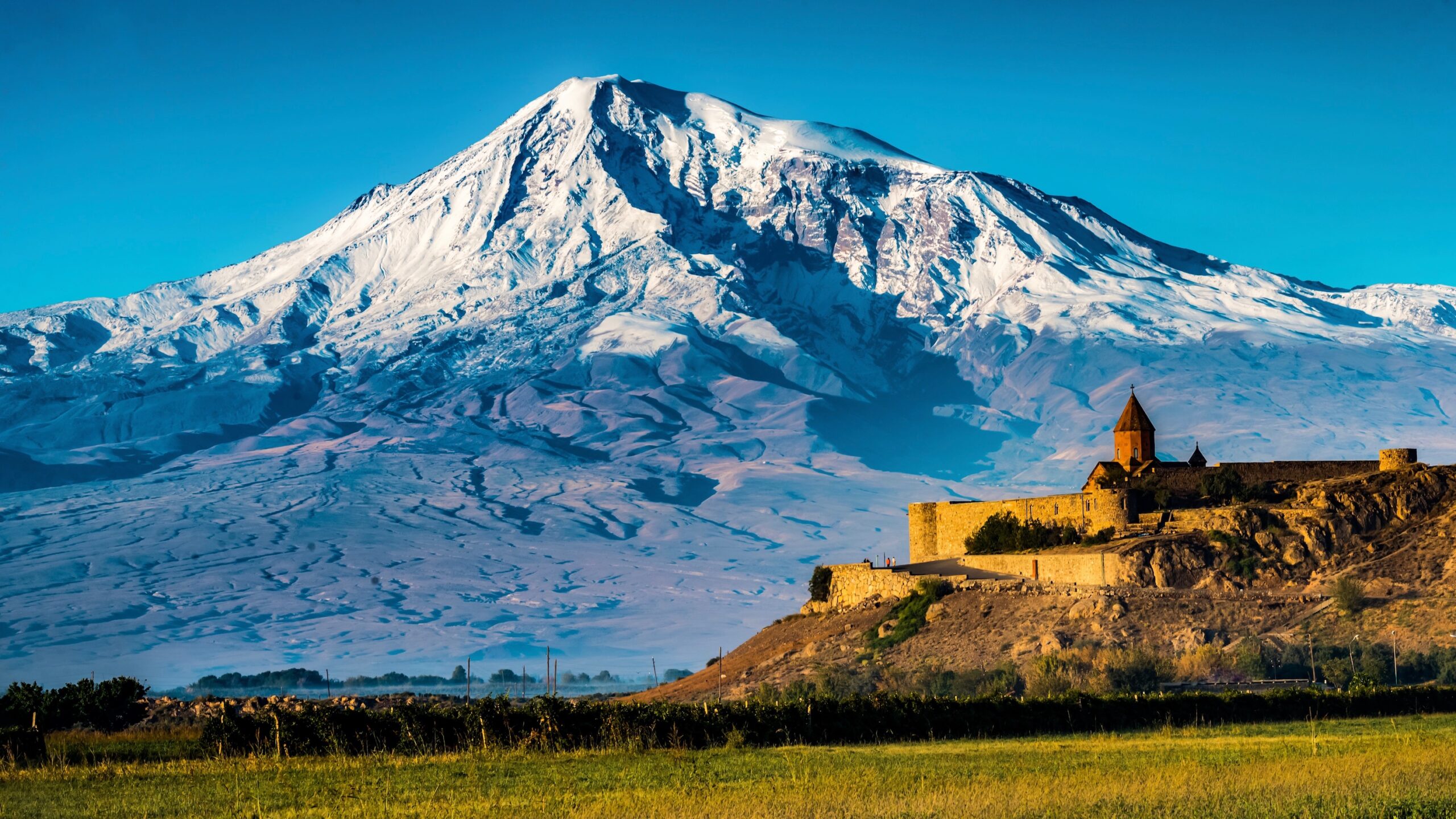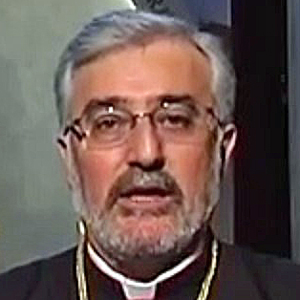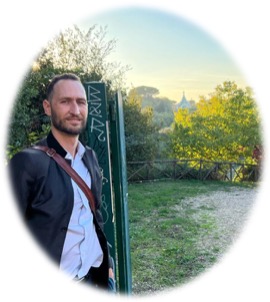
The ancient Armenian monastery of Khor Virap, in southern Armenia. In the background is Mt. Ararat, which is claimed to be the resting-place of Noah’s ark in the book of Genesis

A bishop’s appeal for his people: Armenian Catholic Bishop Mikaël Mouradian (link) is deeply concerned about 120,000 Armenians inside an enclave in Azerbaijian who have been cut off from supplies from the main territory of Armenia due to armed conflicts in the contested territory. Bishop Mouradian is Eparch of the Armenian Catholic Eparchy of Our Lady of Nareg in New York, which also has offices in Glendale, California. The bishop is worried that the 120,000 Armenians in the enclave are suffering many hardships and may be in grave danger. An interview with the bishop is below
Armenia Report 2023, #1: Tuesday, August 22
Urgent Humanitarian Crisis Developing for Christian Community in Armenia
By Christopher Hart-Moynihan, Director, Friends of Lebanon Project (link) and author of The Lebanon Report (link)
Over the past several days, we have been monitoring a developing humanitarian situation in the southern Caucasus, in the region of Nagorno-Karabakh, a region inside of Azerbaijan.
Nagorno-Karabakh is within the borders of Azerbaijan, a Turkic-speaking, majority-Muslim country, but it is an enclave with a large population of (Christian) Armenians that has been in a de facto state of independence, with strong ties to Armenia, since 1991.
After the breakup of the Soviet Union in 1991, the newly independent states of Azerbaijan and Armenia fought a war over Nagorno-Karabakh until May 1994, finally reaching a ceasefire agreement that “froze” the conflict until 2020.
Since 2020, the situation has grown more volatile as Azerbaijan has used various means to exert more and more control over the region.
It now appears that the military of Azerbaijan has blocked the Lachin Corridor, the only road connecting Nagorno-Karabakh with Armenia, leaving the people living in the region without the essential supplies that they have relied upon for years.
In order to better understand what is now unfolding in Nagorno-Karabakh, we spoke with Bishop Mikaël Antoine Mouradian, the (Armenian Catholic) eparch of Our Lady of Nareg in the United States and Canada.
Bishop Mouradian was born in 1961 in Beirut, Lebanon, which has been home to a large community of Armenian Christians since the time of the Ottoman Empire. He attended the seminary of the (Armenian) Patriarchal Clergy of Bzommar in Bzommar, Lebanon. The following is an edited version of our August 18 conversation with the bishop.
Note: All letters from readers will be forwarded to the bishop. —CH-M
“People are dying from malnutrition”: Interview with Armenian Catholic Bishop Mouradian
By Christopher Hart-Moynihan, Director, Friends of Lebanon Project (link)
Interview conducted August 18, 2023
Armenia Report: Bishop Mouradian, can you give us an overview of the history of Nagorno-Karabakh and what is going on now?
Bishop Mikaël Mouradian: Nagorno-Karabakh is an enclave on the map of Azerbaijan, but historically it was part of Armenia. Armenians lived there for centuries.
In 1922, the U.S.S.R. cut off Nagorno-Karabakh from Armenia and gave it to Azerbaijan.
Then in the early 1990s, after the collapse of the U.S.S.R., Nagorno-Karabakh declared independence and wanted to join Armenia, so a war began between Artsakh [the name given to the territory of Nagorno-Karabakh by ethnic Armenians living there] and Azerbaijan.
By 1994, Armenia controlled Nagorno-Karabakh, and then situation was stable until 2016.
In 2016, there was a 4-day war, and [Azerbaijan] failed to retake any territory. However, during September and October of 2020 Azerbaijan, backed by the Turkish military, attacked Nagorno-Karabakh in a 44-day war. The consequence of [the attack] was that, using drones from the Turkish military, they killed almost 6,000 Armenian young men and took [control of] not only more [territory] in Azerbaijan, [but] they [also] took the city of Shusha.
Armenia Report: How did that conflict in 2020 end and what was the agreement regarding the Lachin Corridor?
Bishop Mouradian: There was a trilateral ceasefire agreement (in 2020) between Azerbaijan, Armenia and Artsakh (Nagorno-Karabakh) that there would be an access road from Armenia. In 2022 so-called Azeri activists, on the pretext that they are against mining in the region, blockaded this sole road, which is the vital connection between Nagorno-Karabakh and Armenia. And after that the road was taken over by the military [of Azerbaijan].
They have cut off gas, electricity and water to the region.
Since July 11, 2023, they haven’t allowed the International Red Cross to enter. There are about 120,000 people who depend on this road to receive basic necessities from Armenia. There are about 30,000 children, more than 25,000 elderly, and 9,000 handicapped people.
Armenia Report: What are the consequences of the Azeri authorities blocking this road since July?
Bishop Mouradian: Many essential medicines are not arriving there. Two days ago, I heard that people were dying from malnutrition. There have been 2,500 pregnant mothers suffering miscarriages from malnutrition. Now people are waiting in lines to be given pieces of bread and fainting from malnourishment. The International Red Cross was transporting two men to Armenia for medical care and the soldiers did not allow them to pass through.
Two days ago, the U.N. Security Council met, but there was no outcome. (link) The U.N. knows about the [blocking of the] International Red Cross, but nobody is saying anything about it.
We are urging U.S. President Joe Biden to stop this inhuman behavior of the Azeri government. This is truly inhumane what is happening.
Armenia is not even 30,000 square kilometers, and it has less than 3 million people. Turkey has a population of 70 million, and Azerbaijan has 10 million. For 40 years, the only way to Armenia has been by plane.
Now Turkey and Azerbaijan are planning to attack the region of Syunik (in southern Armenia) and connect their territory. President Erdogan [of Turkey] boasted, saying “We are fulfilling what our ancestors began.” I hope the international community will do something about it, or we will be living another genocide.
[End, August 18 interview with Bishop Mouradian]

A map showing the southern Caucasus region, with Nagorno-Karabakh and the Lachin Corridor indicated near the center. The usual supply line from Armenia to Nagorno-Karabakh has now been cut off by the military of Azerbaijan, leaving Armenians in the region without basic supplies for several months
Please consider becoming a “Friend of Lebanon,” and help us to bring “short-term help” and “long-term hope” to the land where Jesus Christ walked and performed miracles.
 Please consider joining us.
Please consider joining us.
Christopher Hart-Moynihan
Director of Programs
Urbi et Orbi Communications
Enjoy a complimentary digital edition of Inside the Vatican Magazine by clicking here.
You can view all of our previous Lebanon Reports by clicking the button below. Please share with your friends and loved ones.
